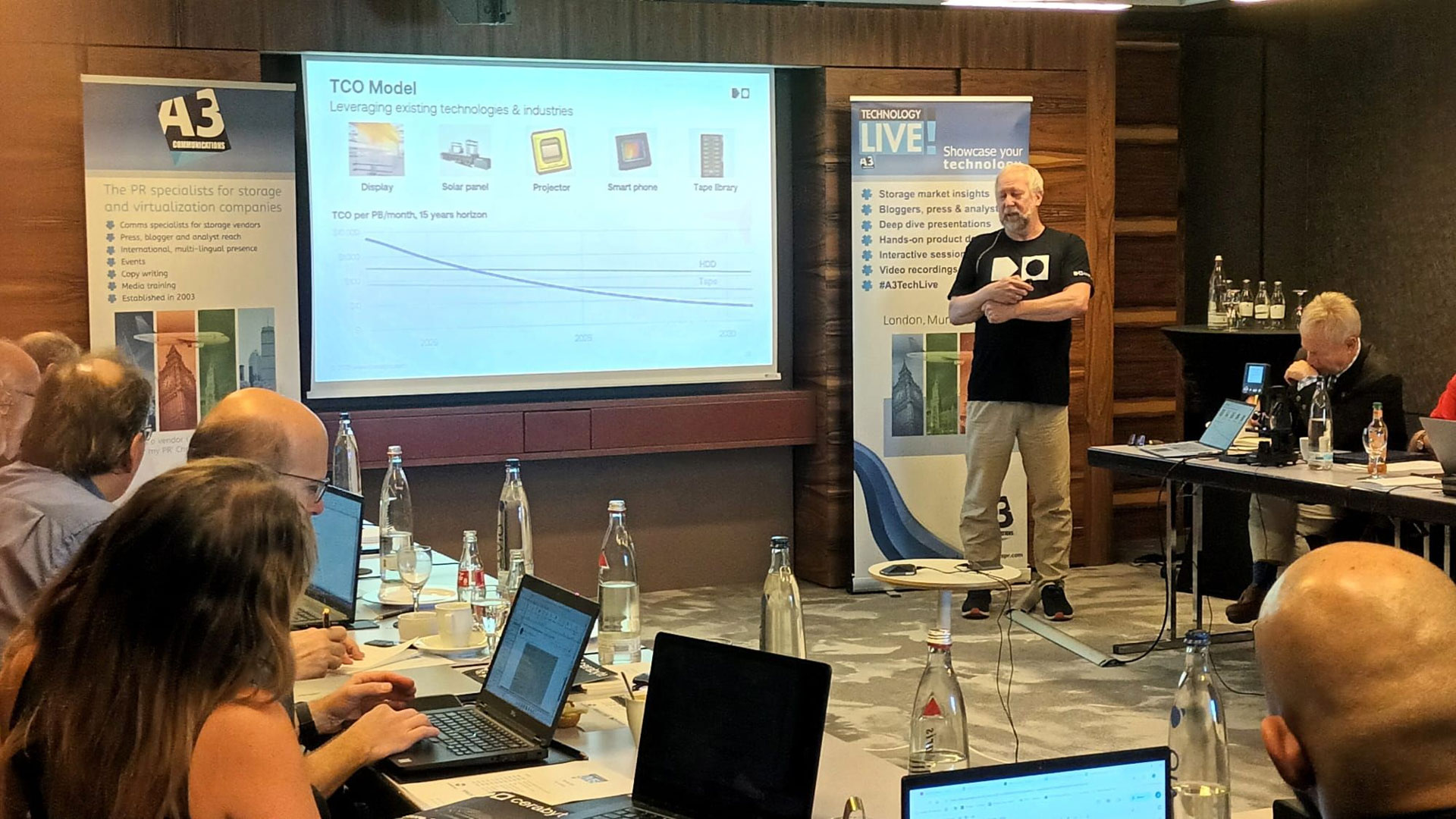
German storage startup Cerabyte recently presented at the A3 Tech Live conference in Munich, where it detailed an ambitious new roadmap. Blocks & Files has shared a few updated details about how Cerabyte’s plans are expected to unfold over the next half decade as it pioneers innovative ceramic nanolayer-based storage. Highlights included the goal of realizing storage systems that offer 100 petabytes (PB) of storage per rack, with transfer rates of 2 GB/s, by 2030. Capacities could even reach 100,000PB per rack by 2045, should supporting laser technologies advance as expected.
Cerabyte is currently on the verge of completing the deployment of its pilot production system. This is roadmapped for 2025/26, so there are a few months of latitude remaining. However, we are sure that the recently announced partnership with storage stalwart Western Digital will help oil the wheels of progress.
This first system boasts a spacious 1PB storage per rack for the pilot, but only pedestrian 100 MB/s data transfers. Another drawback of these first systems will be their 90-second time to first byte (TTFB) performance. While some of these metrics may seem acceptable for archival storage, given its attractively resilient and durable characteristics (with a touted 5,000-year data integrity), more can clearly be done.
100PB per rack by 2030
Across three generations to the end of the decade, Cerabyte plans to attack some of those specs that are perhaps dulling the shine of its ceramic storage solutions. We may have heard about the firm's planned milestones for CeraMemory and CeraTape before. However, Blocks & Files has some supplementary details that point to other substantial spec boosts coming in parallel.
By 2030, we won’t just see Cerabyte racks scaled up to 100PB, it says. This 100-fold capacity boost will be joined by a 10x performance boost, going from 100 to 2,000 MB/s or more. That’s not all in the performance stakes; the TTFB should also be slashed from 90 to just 10 seconds. Those cartridge-juggling robots are going to get a lot faster…
Cerabyte also discussed crucial factors for enterprises, such as total cost of ownership and the carbon footprint of its systems. On the former, it boasts a significant reduction in TCO over the next five years, dropping from $7,000 to $8,000 to just $6 to $8.
Meanwhile, moving from traditional tape to Cerabyte’s solutions could drop the carbon footprint of global data storage from 2% of global CO2 emissions to nearer 1.25%.
100,000PB per rack by 2045
Looking even further ahead on the roadmap has some mind-boggling but ‘far out’ technologies behind the milestones, notes Blocks & Files. For example, by 2045, Cerabyte reckons its femtosecond laser writing tech could be substituted with particle beam matrix tech, reducing write spot size from 300nm to 3nm. This holds the promise of expanding storage on the ceramic media to enable racks with up to 100,000PB.
100,000PB sounds like a lot, but it is estimated that to archive the whole internet in 2025, you would need a spare 181,000,000PB of storage.
Follow Tom's Hardware on Google News to get our up-to-date news, analysis, and reviews in your feeds. Make sure to click the Follow button.







